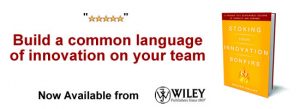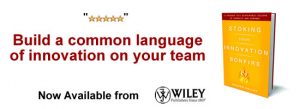My Hopes and Fears of the Black Swan
 Last week I came across an interview with Nassim Taleb, author of “The Black Swan.” Mr. Taleb went on to talk briefly about the main thesis of the book – that every so often events come along that change our vocabulary and our way of thinking about the world around us. The example given, related to the title of the book, was that people in England used to sometimes say “I’m as likely to see that happen as to see a black swan.” That of course was before the discovery of Australia, and before the discovery of – black swans. The point being that people always seek to explain the world around them using the past as a guide, but “black swans” always come along that don’t fit people’s previous understanding of the world.
Last week I came across an interview with Nassim Taleb, author of “The Black Swan.” Mr. Taleb went on to talk briefly about the main thesis of the book – that every so often events come along that change our vocabulary and our way of thinking about the world around us. The example given, related to the title of the book, was that people in England used to sometimes say “I’m as likely to see that happen as to see a black swan.” That of course was before the discovery of Australia, and before the discovery of – black swans. The point being that people always seek to explain the world around them using the past as a guide, but “black swans” always come along that don’t fit people’s previous understanding of the world.
The author then went on to talk about how he saw the financial crisis coming, and how beginning in about 2006 he started advising everyone close to him to move everything into cash. Living in Silicon Valley back in 2001, I saw the stock market and housing and consumer debt bubbles all forming, but I wrongly assumed that when the stock market bubble burst that the housing and consumer credit bubbles would also pop. We now know of course that they didn’t and instead actually got bigger thanks to the acceleration of mortgage securitization and risky lending. This time however, the real estate bubble’s explosion has of course popped the stock market and consumer debt bubbles.
Now of course, every economist and stock picker out there is seeking to explain the current situation using the past as a guide and the government is seeking to avoid the “mistakes” of the past. You have people calling a bottom in real estate, you have people calling a bottom in the stock market, and you have a few people saying the stock market will go down another 20-30%.
The truth is, this is a black swan.
Nobody has ever seen a residential real estate bubble, a stock bubble, and a consumer credit bubble all pop at the same time. One bubble not included in the list, but about to be added is the popping of the commercial real estate bubble. Because all of these bubbles have never all popped at the same time with the financial markets seizing up for good measure, nobody can really tell you what is going to happen next. I won’t endeavor to either. But I will share with you my top five hopes and fears.
Hopes:
- Things will bottom and the huge amount of money sitting on the sidelines in treasuries and money market funds will move back out into stocks and bonds and help to avoid some of the layoffs that would otherwise occur
- The actions of the fed will be sufficient to keep the capital markets functioning
- The stimulus package of Barack Obama and Congress will not result in a pork explosion and will help to set a floor to the downturn
- The government will actually make money on its rescue efforts and the dollar won’t collapse under the weight of all this new debt (meaning China and others won’t dump dollars)
- Private industry working with the Obama administration and state/local governments can help to spur the country into a leadership role in the next wave of global innovation
Fears:
- Consumer spending will hold up better than expected in this holiday season and everyone will get all excited and the market will rally, only to realize that it was one last big debt-fueled hurrah and personal bankruptcies will surge in the first quarter (January-March)
- Housing foreclosures which dropped in November will also remain relatively tame in December as people seek to be home for the holidays, only to see home foreclosures spike in the first quarter (January-March)
- As retailers accelerate store closures in the first quarter and commercial real estate companies come under pressure, it will spark another round of trouble in the financial services sector and the credit markets may seize up again
- Companies that have a heart and chose not to lay people off right before the holidays, will finally succumb and turn loose an avalanche of layoffs in the first quarter, making credit card and mortgage default problems even worse
- The pent up aggression that we have seen erupt in places like Greece may erupt here if things get substantially worse
What are your hopes and fears?
NEVER MISS ANOTHER NEWSLETTER!
LATEST BLOGS
The Evil Downside of Gift Cards
This past holiday season I saw probably one too many articles trumpeting the value of gift cards to retailers and how they are a great thing for retailers. My skeptic side starts coming out as I see article after article appear, and I have to start asking “Is the increasing prevalence of gift cards as a holiday gift (primarily Christmas) a good thing for retailers?”
Read MoreWhy the iPhone will not succeed – Yet
The new Apple iPhone is set to launch on June 29, 2007 and the press and investors are making it a darling. Investors have run Apple’s stock price up from about $85 per share before its announcement to $125 per share recently, but the iPhone still will not succeed – at least not yet.
Read More


